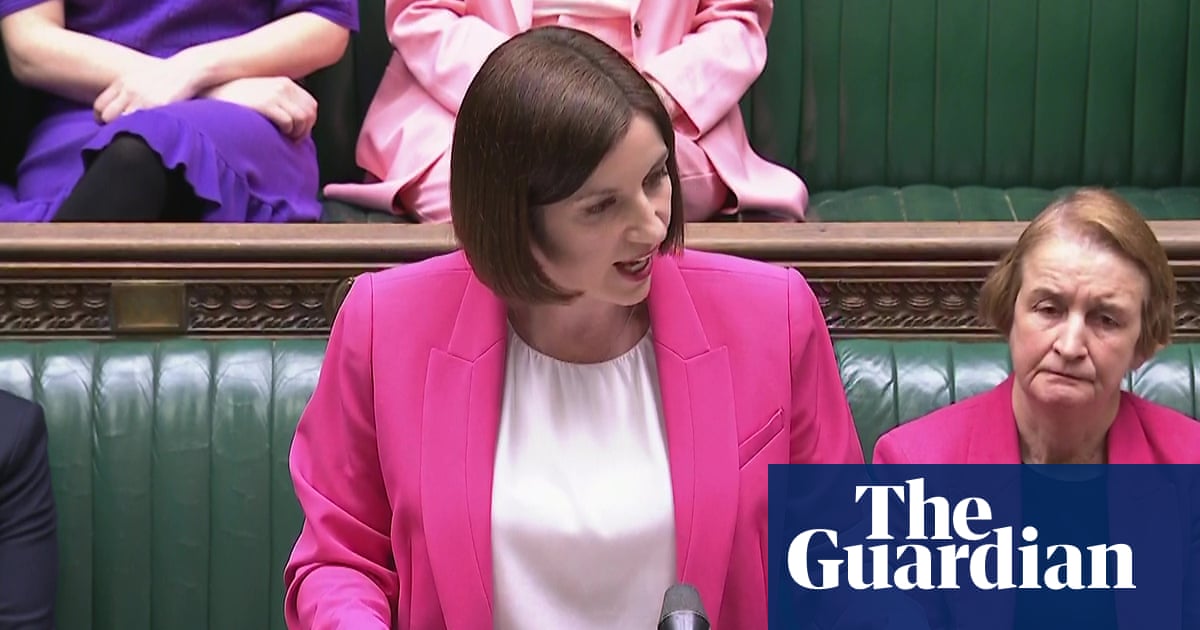Prison officers are expected to be allowed to use pepper spray to incapacitate children under plans to curb an increase in violence at young offender institutions.
The use of Pava spray, a synthetic form of pepper spray, across the five YOIs in England and Wales has been under discussion by ministers, the Guardian has been told.
It follows plans to introduce trials for the use of Tasers in adult prisons. Sources said that ministers could authorise the introduction of the incapacitant spray in YOIs after demands from the prison officers’ union.
Senior members of the Prison Officers’ Association are due to meet the justice secretary, Shabana Mahmood, on Wednesday.
The meeting was called after the attack on three guards at HMP Frankland, an adult prison, allegedly by the convicted terrorist Hashem Abedi. Two officers were seriously injured after being doused in hot cooking fat and stabbed, one five times in the torso, in a sustained assault in a prison kitchen on 12 April.
There have been rising concerns about the levels of violence aimed at staff in YOIs, which hold more than 400 children aged between 15 and 18. A report in October by HM inspector of prisons, Charlie Taylor, found that only one of five of the institutions was deemed to be “safe”.
“Our inspection reports of establishments holding children described behaviour management systems that were overwhelmed by very high levels of violence,” the report said. “Many comments from staff highlighted fears for their own safety.”
Any decision to allow the use of Pava on juveniles would be opposed by prison welfare charities and the prisons watchdog, who say its use would create further divisions between staff and the minors in their care.
Squirted from a canister, Pava spray, or pelargonic acid vanillylamide, causes searing pain and discomfort in the eyes for about 40 minutes and a burning sensation to skin.
In 2018, it was rolled out in men’s prisons in England and Wales. Since then, there have been claims of disproportionate use against disabled people and those from minority ethnic backgrounds.
Tom Wheatley, the president of the Prison Governors’ Association, said Pava had become a useful tool in adult prisons because it allowed smaller and physically weaker staff members to halt bigger and stronger assailants. “Pava is about levelling a violent confrontation between a member of staff and a prisoner. It has value because not all officers are 6ft 4in and 18 stone,” he said.
Asked if he would be worried about the effect of Pava on children if the spray was used in YOIs, Wheatley said: “I don’t know if there’s a greater physiological risk on young people. But being punched in the face by a 6ft 4in 17-year-old probably feels very similar to being punched by a 6ft 4in adult.”
Mahmood previously announced that the Prison Service will investigate whether frontline staff should be given protective body armour, and the Ministry of Justice has pledged to carry out a review after the Frankland incident.
Speaking in the Commons on Tuesday, Mahmood said: “The House will be aware of the attack at HMP Frankland … Since the attack, I have suspended access to kitchens in separation centres and in close supervision centres.
“Alongside that, an independent review will ascertain how this incident was able to happen, what more must be done to protect prison staff and, more widely, how separation centres are run.
“The Prison Service will also conduct a snap review of the use of protective bodily armour. In addition, I can today announce that HMPPS [HM Prison and Probation Service] will trial the use of Tasers in our prisons.
“Wherever we can strengthen our defences, to better protect our staff and the public, we will do so.”
The MoJ was approached for a comment regarding Pava.

 5 hours ago
6
5 hours ago
6













































